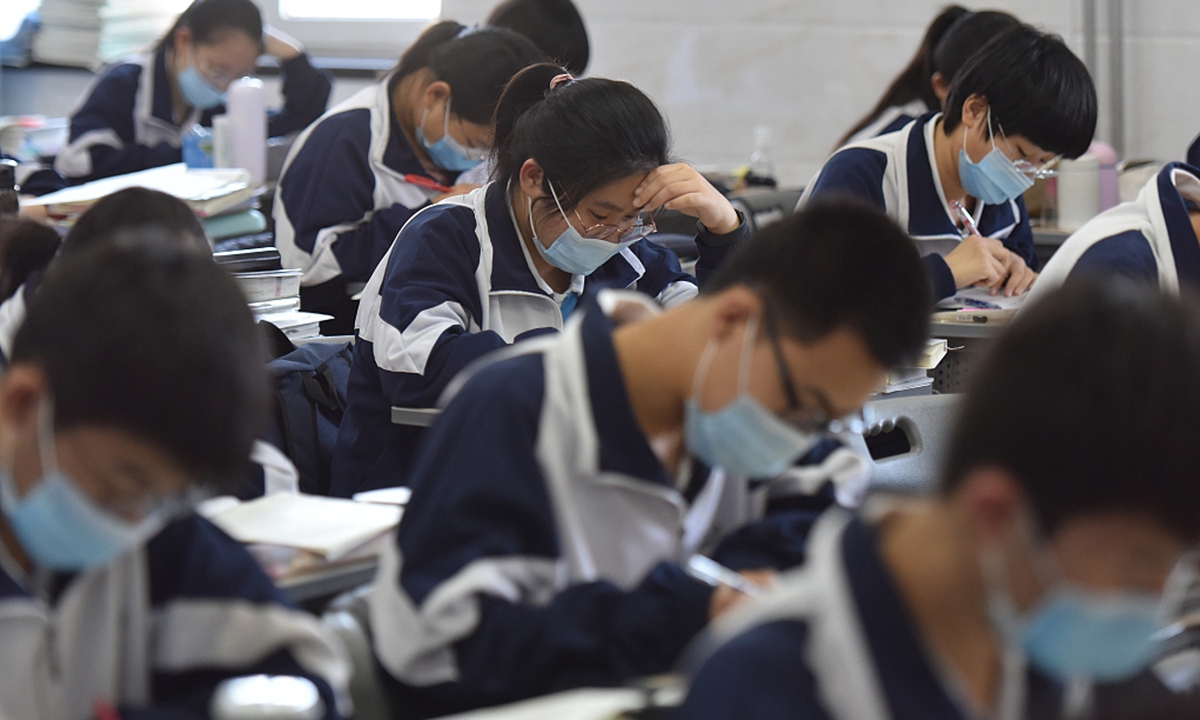Chinese psychologists call for more care of high school students' mental health following death of 16-year-old student

Photo: VCG
Chinese psychologists have called for more care of the mental health of children and adolescents on Thursday following the tragic death of a 16-year-old student who jumped to his death at a high school in Southwest China's Sichuan Province.
Huang Dexin, a psychologist at a high school in South China's Guangxi Zhuang Autonomous Region, told the Global Times on Thursday that the student, surnamed Lin, may have been in a state of depression for a long time, given his previous behavior of cutting his wrist and using anxious language in a QQ chat earlier this month.
"Teenagers can easily lose the confidence to continue their life if they are under long-term distress from emotions such as sense of meaninglessness, worthlessness and guilt. This might be the reason why Lin jumped off the building," said Huang.
Mo Nan, a psychotherapist based in Beijing, said that Lin may have decided to end his life on an impulse as he did not seem to have a plan such as sending some gifts or farewell messages.
"Judging from the chat records that the police released, the child showed many negative emotions like anxiety and low self-esteem. Lin mentioned wanting to end his life, which may have been a cry for help, but teachers and parents did not notice it in time," Wang Ying, a psychologist at Beijing Reading the Heart Psychological Health and Technology Company, told the Global Times on Thursday.
Wang said that self-harm by children and adolescents is increasing, and families, schools and the whole of society need to pay attention to the issue.
According to Wang, studies have shown that the incidence of children and adolescents who have psychological or behavioral problems in China is about 20 percent, but many do not get help.
About 30 percent of adolescents and children may have problems such as depression and anxiety that can develop into self-harm and other tendencies or even suicide. About half of patients with depression have symptoms before the age of 14, but most people do not receive timely attention and treatment.
Chinese psychologists have suggested developing more mental health services in high school. Huang suggested mental health files for adolescents and conducting mental health checks, and Mo suggested communication and cooperation with psychologists at universities as mental health work is generally more effective at higher-education institutions than high schools.
Meanwhile, building a more open parent-child relationship would also be beneficial for relieving distress among teenagers. Media reports on suicides should also be cautious, because a large number of foreign studies have suggested that inappropriate media coverage can encourage imitation.
"Preventing suicide and protecting the mental health of children and adolescents has a long way to go and will require the joint participation and efforts of children, families, schools and the whole of society," said Wang.

